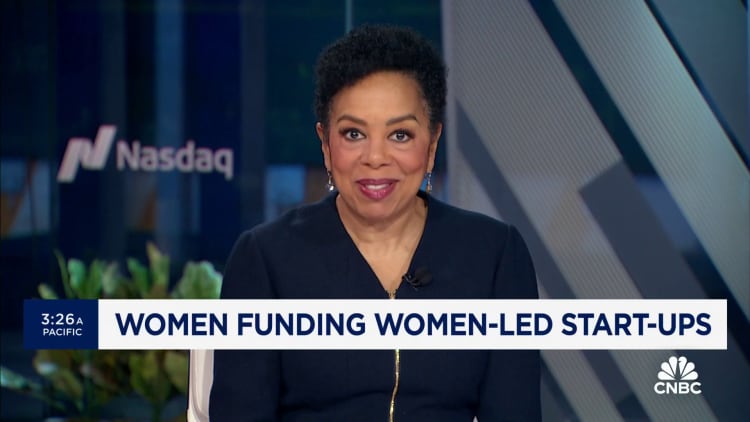The author, Bola Sokunbi
Credit: Bola Sokunbi
When it comes to managing money, women commonly use the word “fear” to describe what stands between them and the life they want.
But achieving financial success means stepping out of our comfort zone, said Bola Sokunbi, founder of Clever Girl Finance and author of “Choosing to Prosper” — and that requires practice and intention.
“We can’t ditch our fears, but we can be intentional about managing our fear,” Sokunbi said during CNBC’s Women & Wealth event Tuesday.
Often, it’s women who feel financially insecure, according to Northwestern Mutual’s 2023 Planning and Progress Study.
Regardless of their household income, 93% of women feel stress when it comes to money, a recent report by Fidelity Investments found.
Women are also more likely to live paycheck to paycheck and consider themselves financially fragile, other reports show.
Most women are worried about money
For women, “financial stress is pretty consistent across all age groups and income,” said Lorna Kapusta, head of women and engagement at Fidelity.
However, financial stress levels drastically decrease with each additional month of emergency savings set aside, according to Fidelity. Roughly 81% of women with no emergency savings felt a fair amount or a lot of stress. Once women have three months’ worth of emergency savings, only 26% report high stress levels, Fidelity found.
Most financial experts recommend having at least three to six months’ worth of expenses as a cushion, or more if you are the sole breadwinner in your family or in business for yourself.
The right amount for you comes down to peace of mind. “Emergency savings is your ‘sleep at night’ number,” Kapusta said.
‘Financial freedom means living life on your own terms’
“Having that financial freedom means living life on your own terms,” Clever Girl Finance’s Sokunbi said. “You can walk away from circumstances or jobs that no longer serve you.”
“It gives you options. It allows to you achieve the life you want,” she said.
To feel financially secure, regardless of your starting point, “consistency is key,” Sokunbi said.
“If you are unable to manage your money when you have a little bit, it will be difficult to be consistent and manage your money when you have a lot,” she said.
Start with the basic principles of saving and investing and paying down debt, she advised. Those simple steps are “going to help you move forward and make that progress over time to achieving your financial goals.”
Subscribe to CNBC on YouTube.
Credit: Source link




